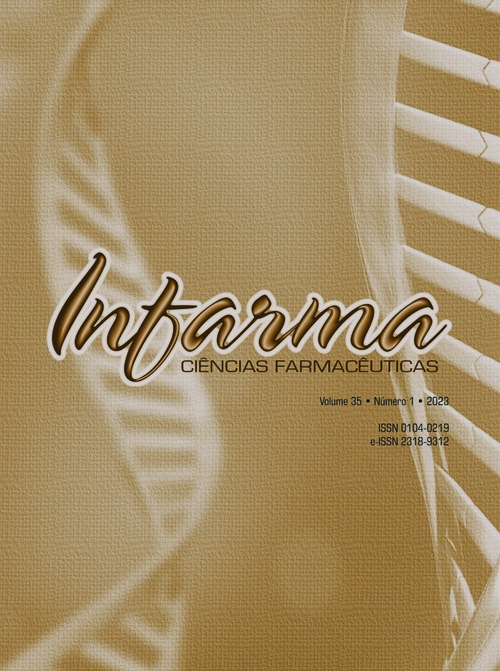STUDY OF THE EFFECTS OF VINPOCETINE ON INDICATORS OF ACID-ALKALINE STATE FOLLOWING THE ISCHEMIC BRAIN DAMAGE
DOI:
https://doi.org/10.14450/2318-9312.v35.e1.a2023.pp41-51Palavras-chave:
vinpocetine, cerebral ischemia, reperfusion, acid-base state, carbon dioxide tensionResumo
Vinpocetine is a multipurpose medicine with several pharmacological targets. It is known for its neuroprotective properties. Its mechanism of action in brain pathology is due to a selective inhibitor of phosphodiesterase type 1, inhibition of voltage-gated sodium channels, and a decrease in calcium influx into neurons. Vinpocetine combines high clinical efficacy and safety of use. Therefore it successfully competes in the pharmaceutical market with an ever-increasing number of new medicines. The purpose of the work was to experimentally study the effects of vinpocetine in cats at a dose of 5 mg/kg on the indicators of the acid-base state (ABS) of arterial and venous blood in the simulation of total cerebral ischemia. The effect of vinpocetine on acid-base status indicators should be considered as the most important aspect of its action, contributing to the neuroprotective effect. The paper discusses possible molecular targets and mechanisms for implementing the protective effect of vinpocetine in ischemia, considering its favorable effect on ABS. These new findings may point to increased use of vinpocetine in human cardiovascular diseases accompanied by ABS deterioration.
Downloads
Publicado
Como Citar
Edição
Seção
Licença
Autores que publicam nesta revista concordam com os seguintes termos:- Autores mantém os direitos autorais e concedem à revista o direito de primeira publicação, com o trabalho simultaneamente licenciado sob a Licença Creative Commons by NC ND que permite o compartilhamento do trabalho com reconhecimento da autoria e publicação inicial nesta revista.
- Autores têm autorização para assumir contratos adicionais separadamente, para distribuição não-exclusiva da versão do trabalho publicada nesta revista (ex.: publicar em repositório institucional ou como capítulo de livro), com reconhecimento de autoria e publicação inicial nesta revista.
- Autores têm permissão e são estimulados a publicar e distribuir seu trabalho online (ex.: em repositórios institucionais ou na sua página pessoal) a qualquer ponto antes ou durante o processo editorial, já que isso pode gerar alterações produtivas, bem como aumentar o impacto e a citação do trabalho publicado (Veja O Efeito do Acesso Livre).


